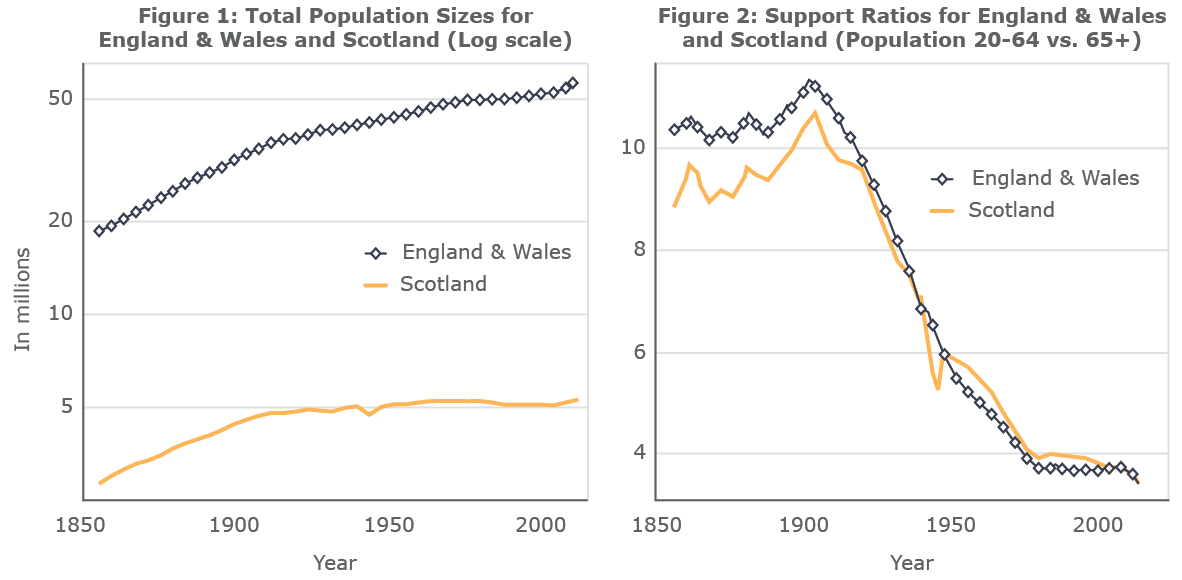As negotiations over Scotland’s fiscal future in the UK progressed earlier this year, one obstacle loomed ever larger: Scotland’s long-term low rate of population growth and falling support ratio, the number of people contributing to versus drawing from contribution-based social policies. Negotiators are right to fret. Falling support ratios make policies like pensions costlier for society and the economy. Scotland’s new fiscal arrangement must comply with the “no detriment” principle, but a differentially growing tax base makes indexing UK transfers to the region troublesome, politically and mathematically. At first glance, immigration seems to be a promising solution. The mechanism is simple. Migrants tend to be young and, in many cases, have more children than the average “native” European family. More young people mean higher population growth, slower ageing, and higher support ratios. But the long-term reality is more complicated. My forthcoming paper [1] shows how by examining the effects of long-term migration patterns. In Scotland, high levels of outward migration over the past 150 years indeed resulted in considerably lower population growth than for England and Wales in the twentieth century (Fig. 1). The departure of so many young, working age people, and their historically high fertility profile, also aged the population (Fig. 2). Yet, the population of England and Wales aged, too, at a nearly identical rate as Scotland’s, but with near-zero net migration: they have aged while growing.

Source: Based on author‘s calculation of Human Mortality Data
This emphasises two things. First, an ageing population is not necessarily shrinking. Second, though affected by similar forces, population size and structure must be treated separately. Immigration is not a long-term solution for population ageing, and, because immigrants age, too, only for low population growth if continuously replenished. This is not to say Europe can shed its responsibility to manage migration humanely. However, it does mean that changing the age structure of a population is more complicated than opening borders.
//www.lse.ac.uk/researchAndExpertise/Experts/profile.aspx?KeyValue=m.murphy [at] lse.ac.uk">Michael Murphy, London School of Economics and Political Science, UK
[1] Michael Murphy (Population Studies, forthcoming): The effect of long-term migration dynamics on population structure in England & Wales, and Scotland.